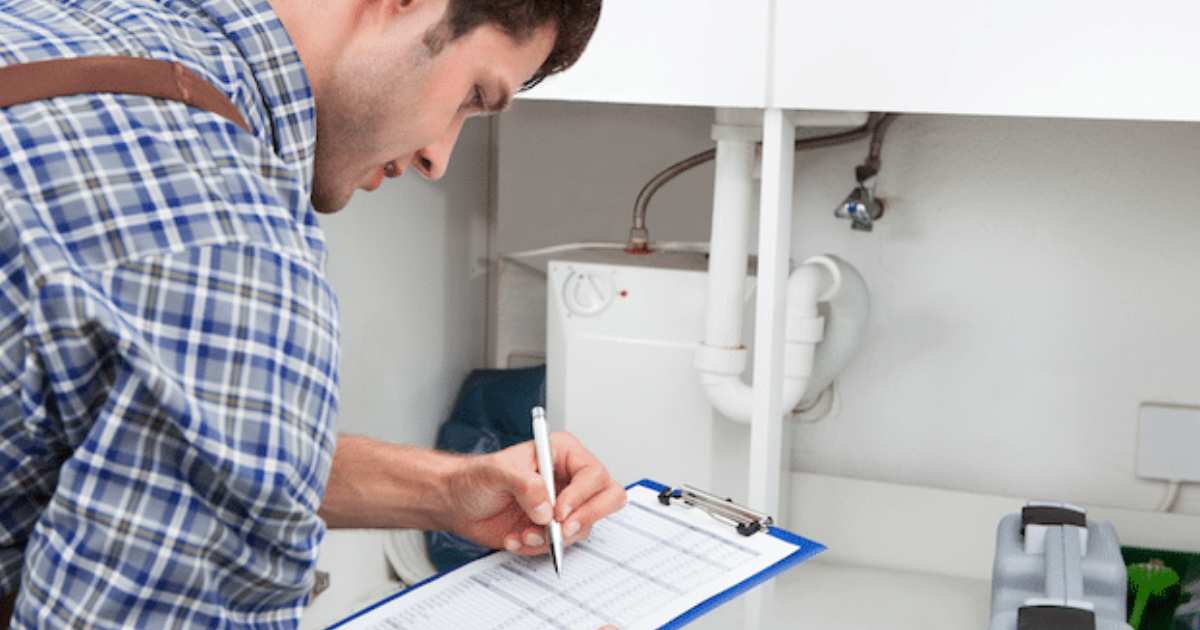Ever opened your utility bills and felt your heart sink at the sight of a sky-high sewer bill? You’re not alone. Many Americans struggle with rising water usage costs, but there’s hope on the horizon. By making a few smart changes, you can significantly reduce sewer charges and keep more cash in your pocket.
In this guide, we’ll dive into six practical strategies to trim your sewer bill. These tips aren’t just about pinching pennies; they’re about embracing water conservation and becoming a more environmentally conscious homeowner. Ready to start saving? Let’s dive in!
How is your sewer bill calculated?
Understanding your sewer bill is the first step to reducing it. Most cities base these charges on your water use, assuming that what goes down the drain ends up in the sewer system. Your bill typically includes fees for treating wastewater, maintaining sewer lines, and sometimes storm water management.
The calculation can vary by region, but it often involves a fixed service charge plus a rate based on your water consumption. Some areas use winter averaging, where they estimate your sewer usage based on winter water usage when outdoor water use is minimal. Knowing these factors can help you target your water conservation efforts more effectively.
6 tips to reduce your sewer bill
1. Check for leaks

Silent water thieves might be lurking in your home. A dripping faucet or running toilet can waste gallons of water daily, inflating your water bill and sewer bill without you even realizing it. Take time to inspect your plumbing regularly. Listen for hissing sounds, watch for damp spots, and keep an eye on your water meter when all taps are off. If you notice any changes, it’s time to investigate or call in a pro. Fixing leaks isn’t just about saving money, it’s a crucial step in water conservation.
2. Change your shower habits
Your daily shower is a prime opportunity for water-saving. Consider cutting your shower time by just a few minutes you’d be surprised how much water this saves over a month. Installing a low-flow showerhead can also make a big difference. These nifty devices maintain good water pressure while using less water. For the adventurous, try the “Navy shower” technique: wet yourself, turn off the water while you soap up, then rinse quickly. It’s a bit extreme, but it’s a surefire way to slash your water usage.
3. Don’t leave your faucet running
Mindful water use is key to reducing your sewer bill. Many of us have the habit of leaving the tap running while brushing teeth, shaving, or washing dishes. This seemingly small action can waste gallons of water daily. Try turning off the faucet when you’re not actively using the water. For tasks like shaving, fill the sink basin instead of letting the water run continuously. These small changes in habit can lead to significant water conservation over time.
4. Wait until you have a full load
When it comes to your washing machine and dishwasher, patience pays off. Running these appliances with partial loads wastes water, energy, and money. Wait until you have a full load before starting a cycle. If you must run a smaller load, look for settings on your machine that adjust water levels accordingly. Front-loading washing machines tend to be more water-efficient than top-loaders, so consider this if you’re in the market for a new appliance. Remember, every full load you run is a step towards water conservation and a lower sewer bill.
5. Use energy-efficient appliances
Investing in energy-efficient appliances can significantly reduce your water usage and, consequently, your sewer bill. Modern water-efficient washing machines, dishwashers, and water heaters are designed to use less water without compromising performance. While the upfront cost might be higher, the long-term savings on your utility bills can be substantial. Look for appliances with the WaterSense label; these products are certified to be at least 20% more water-efficient than standard models. Many local utilities offer rebates for purchasing water-saving appliances, making the switch even more appealing.
6. Use low-flow fixtures
Low-flow fixtures are a game-changer in water conservation. These include faucets, showerheads, and toilets designed to use less water while maintaining functionality. A low-flow toilet, for instance, can use as little as 1.28 gallons per flush compared to older models that use up to 7 gallons. A low-flow faucet aerators can reduce water flow by 30% or more. Installing these fixtures throughout your home can lead to substantial water-saving and a noticeable decrease in your sewer bill. Don’t worry about performance, modern low-flow fixtures are engineered to provide satisfactory water pressure and flushing power.
What happens if I don’t pay my utility bills on time?

Falling behind on your utility bills can lead to a cascade of unpleasant consequences. Most utility companies have strict policies regarding late payments. You might face late fees, which can add up quickly if you’re consistently behind. In severe cases, your water service could be disconnected, leading to reconnection fees when you’re ready to settle your account.
But the impact doesn’t stop there. Unpaid utility bills can negatively affect your credit score. While utilities don’t typically report your regular payments to credit bureaus, they often report seriously delinquent accounts or those sent to collections. A collections debt on your credit report can significantly damage your credit standing, making it harder to secure loans or favorable interest rates in the future. It’s crucial to communicate with your utility company if you’re struggling to pay many offer payment plans or assistance programs to help you stay on track.
How paying your utility bills may help you build credit
While most utility bills don’t automatically impact your credit score, there are ways to use them to your advantage. Some utility companies participate in programs that allow you to opt-in to credit reporting. This means your on-time payments for services like water, electricity, and gas can be reported to the major credit bureaus, potentially boosting your credit score.
These opt-in services can be particularly beneficial for those with limited credit history or those looking to rebuild their credit. Consistent, on-time payments of your utility bills can demonstrate financial responsibility to potential lenders. It’s important to note that once you opt-in, late payments could also be reported, potentially harming your credit. Before signing up, ensure you can consistently pay on time and understand all terms of the reporting service.
Also Read This Post:
Gross Rent v Net Rent: Key Differences
Which bills are reported to the credit bureaus?
Bills that can be reported using opt-in services
Several types of utility bills can be reported to credit bureaus through opt-in services. These typically include electricity, gas, water, and telecommunications bills. Some rent reporting services also allow you to add your rent payments to your credit report. To participate, you’ll need to sign up with a third-party service that partners with your utility providers. These services usually charge a fee, but the potential boost to your credit score could be worth the investment, especially if you’re trying to build or rebuild credit.
Bills that aren’t typically reported to the credit bureaus
Many regular bills don’t automatically appear on your credit report. These often include things like insurance premiums, gym memberships, and streaming services. While these payments don’t directly impact your credit score, falling behind on them could still lead to collections debt, which would then appear on your report. If you’re looking to build credit, consider asking your landlord about rent reporting services or look into secured credit cards as alternative methods to establish a positive payment history.
Use less water and save on your sewer bill
Reducing your water use is the most direct way to lower your sewer bill. By implementing the tips we’ve discussed fixing leaks, changing shower habits, using water-efficient appliances, and installing low-flow fixtures you can significantly cut your water consumption. Every drop saved is money kept in your pocket.
But the benefits extend beyond your wallet. Water conservation is crucial for environmental sustainability. By using less water, you’re helping to preserve this vital resource for future generations. You’re also reducing the energy required to treat and transport water, which in turn lowers your carbon footprint. So, as you watch your sewer bill shrink, take pride in knowing you’re also doing your part for the planet. Keep exploring new ways to save water your creativity could inspire others and contribute to a more water-conscious community.

I am a content writer with three years of experience, specializing in general world topics. I share my insights and knowledge on my personal blog, “generalcrunch.com”, providing informative content for my readers.